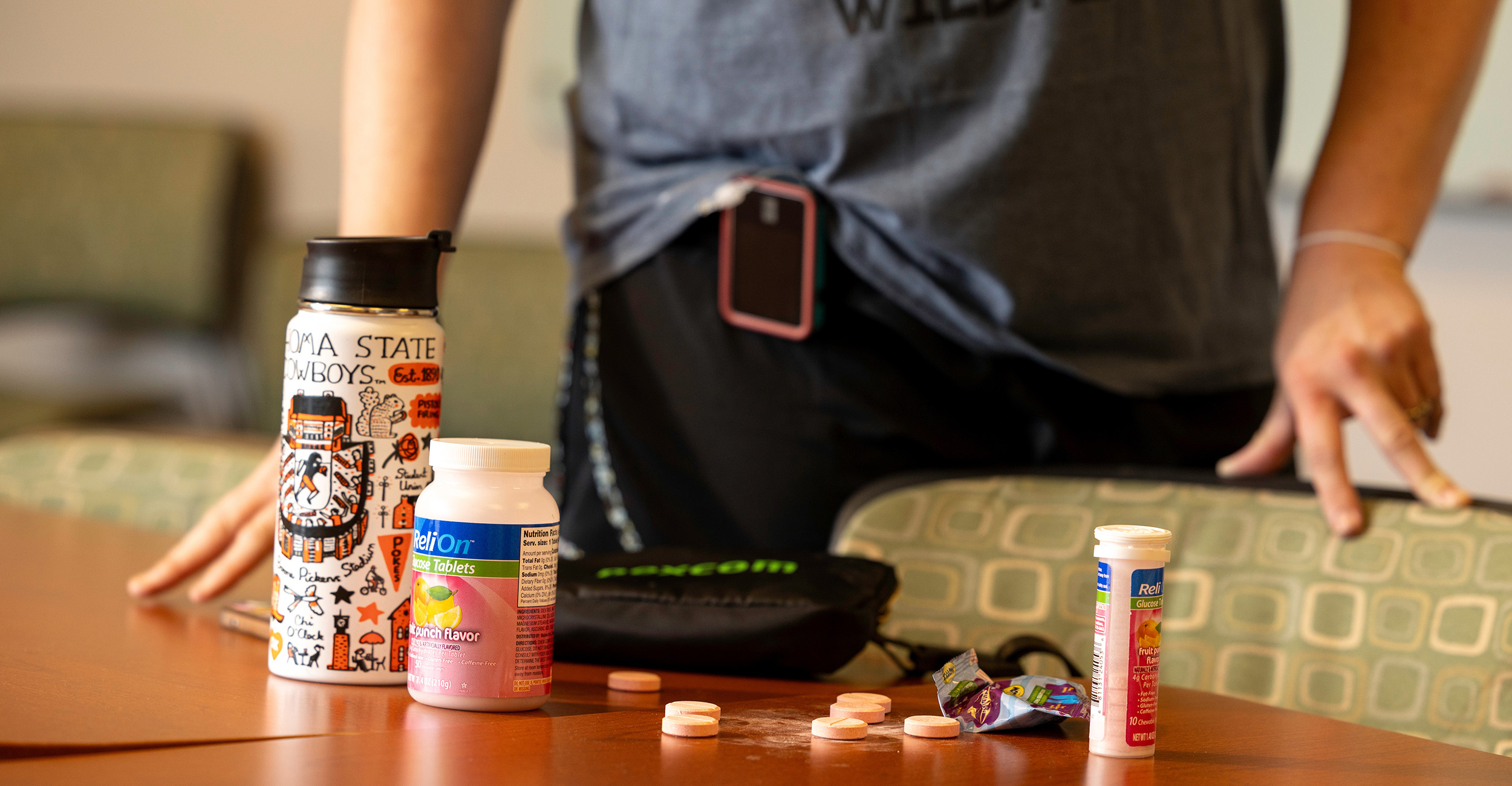
Summer heat can adversely affect blood sugars
Tuesday, May 28, 2024
Media Contact: Trisha Gedon | Sr. Communications Specialist | 405-744-3625 | trisha.gedon@okstate.edu
Temperatures are rising, and the summer heat can directly impact people with diabetes.
People with diabetes or who have prediabetes are affected by more than their physical activity levels and what foods they put in their body, said Lauren Amaya, Oklahoma State University Extension diabetes specialist.
“Individuals with type 1 or type 2 diabetes or who have prediabetes can have more adverse reactions to the heat, especially when engaging in moderate or vigorous physical activity when outdoors,” Amaya said. “Heat can cause the body stress, which affects blood sugar, but how it affects one person will differ from how it affects another. Always be prepared when planning outdoor activities, especially in warmer weather.”
Amaya recommends at least 180 minutes of weekly activity for most people with diabetes. Depending on a person’s blood sugar level, heat stress can cause blood sugar to increase. However, if a person’s blood sugar level is lower or within normal range, heat may have the opposite effect and cause blood sugar levels to plummet.
Before going into the heat outdoors, Amaya suggests people with diabetes who take insulin or some other diabetes-related medications be aware that heat can cause hypoglycemia. Glucose is necessary to raise their blood sugar.
“People with diabetes who are physically active in the heat can eat a complex carbohydrate snack with protein or fat, such as apple slices with peanut butter, to help blood sugar stay in range. Also, they should carry glucose and have the ability to contact someone if they need help,” Amaya said. “As a person with diabetes myself, I always carry a fanny pack with emergency supplies like glucose tablets, fruit snacks, water for hydration and my phone to call for help if needed.”
In general, a target blood sugar range of 90-250 mg/dl before exercise is recommended.
Amaya advises eating a meal and then checking blood sugar before participating in outdoor activities. If blood sugar is elevated, people are at a higher risk of dehydration because the body is trying to flush out excess glucose.
“This is one reason why it’s important to stay hydrated. All fluids count for hydration, but non-caffeinated beverages are better,” she said. “Beverages containing alcohol don’t count for hydration.”
Amaya teaches the National Diabetes Prevention Program online course for people with prediabetes and diabetes. Stephanie Sandlin said her doctor recommended the class to prevent diabetes.
“I’m considered as having prediabetes and have been for several years,” Sandlin said. “I do have issues with the heat due to prediabetes and other health conditions. Learning how to manage these health issues is really making a difference for me.”
Sandlin took nutrition classes in college, and the online diabetes prevention course has been a good refresher to help improve her diet and overall health
“I enjoy the class and appreciate the opportunity we have for questions on clarification of any information,” Sandlin said.
Amaya said in addition to medications, physical activity plays an important role in managing diabetes.
“Being physically active is important for everyone, especially people with diabetes. Anyone noticing health complications from being out in the heat should follow up with their primary care physician,” she said.
